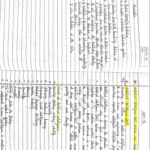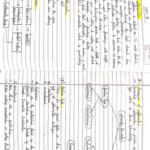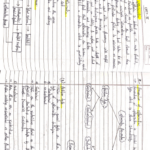Hatch-Waxman Act-And orange book
• The 1984 Drug Price Competition and Patent Term
Restoration Act, commonly referred to as the Hatch-
Waxman Act (named after Congressman Henry
Waxman and Senator Orin Hatch) gave rise to a
strong generic drug industry.
• The Hatch-Waxman Act provided a rapid way of
generic drug approval process by permitting generic
drug manufacturers to file an Abbreviated New Drug
Application (ANDA).
• The Abbreviated New Drug Application (ANDA)
allowed approval of generic drug products by a
shorter and less expensive route than for innovator
drugs. Before Hatch-Waxman, only 35% of innovator
drugs faced generic competition after expiry of
patents; now almost all innovator drugs face such
competition.
• According to the law, a generic applicant is required
to give one of the following four certifications for
each patent listed in the Orange Book for the
innovator drug:
(I) Paragraph I: that there are no patents listed in the
Orange Book for the drug;
www.DuloMix.com
(II) Paragraph II: that the relevant patents have
expired;
(III) Paragraph III: that the generic manufacturer will
not seek approval of the ANDA until after expiration
of the relevant patent; or
(IV) Paragraph IV: that such a patent is invalid or
will not be infringed by the manufacture, use, or sale
of the new generic drug for which the ANDA is
submitted.
• Under the current Patent Act, the term for exclusivity
is 20 years from the date of filing of patent.
• Hatch Waxman Act provides innovator drug
manufacturers with increased market exclusivity
periods to reimburse for the time lost while the drugs
are under regulatory approval by the FDA.
• Dr Reddys was the first Indian company to get the
180-day exclusivity for marketing Fluoxetine (Eli
Lillys Prozac) 40 mg capsule in August 2001.
Besides the 180-day exclusivity, one particular
vulnerable condition under the Hatch-Waxman Act is
the 30-month stay. The stay was planned to allow
time to resolve all patent disputes and infringement
issues prior to the generic drug entering the market.
www.DuloMix.com
• Under the Act, the innovator drug manufacturer can
list additional patents for the same brand-name drug
in the Orange Book even after a generic company has
already filed an ANDA.
• As a result, the generic applicant is required to
submit a new paragraph IV certification for the later
listed patents.
• The consequence of the later patent listings is that if
the brand-name company sues for this ANDA re-
certification within 45 days, then another 30-month
stay is generated for the same drug.
• The Federal Trade Commission (FTC) study has
identified that some big pharmaceutical companies
have deliberately misused this loophole.
• The FTC study found that during 1992 to 2000, 104
NDAs were the question of paragraph IV certification
patent challenges. An example for this is Glaxo
Smith Klines attempt to protect the antidepressant
medication Paxil (paroxetine hydrochloride) from
generic competition. Apotex, a generic manufacturer,
filed a Paragraph IV ANDA for a generic version of
Paxil in March 1998. GSK sued for infringement,
triggering an initial 30-month stay, which expired in
November 2000. However, GSK afterward listed
additional patents in the Orange Book and filed more
www.DuloMix.com
infringement suits against Apotex. In all, GSK
obtained five lengths of stays (total 65 months).
• Another misuse of the law being currently practiced
is that the first generic manufacturer and the
innovator enter into an agreement to have a control
when to introduce the generic.
• This would not trigger the 180 days generic
exclusivity period offered to the first generic and the
FDA is bound not to approve another generic until
the 180 day generic exclusivity period expires.
• This will delay the competition for an indefinite time
period by keeping other generic competitors in an
indeterminate state.
• This will further extend the brand name monopoly
and allows the brand name and the generic
manufacturer to share the financial awards. In FTC’s
view, some of these agreements violate antitrust laws
and in those cases the agency takes legal action
against the parties involved.
• FDA finalized new rules in June 2003 in order to
tighten the loopholes in the Hatch-Waxman Act. The
new FDA regulations make two major changes in the
Hatch-Waxman Act.
www.DuloMix.com
• First of all, the regulation clearly clarifies the types of
patents that are appropriate to be listed in the Orange
Book. Such patents include the patents that claim the
drug product (formulation and composition), product
by process patents, and those that claim a method of
use. Process patents, patents claiming packaging,
intermediates and metabolites are not covered under
this section and information on these patents may not
be submitted to the FDA.
• Second, the new FDA regulation limits
pharmaceutical companies to only one thirty month
stay per ANDA.
• Additionally, a new provision of the Hatch-Waxman
Act amendments requires an ANDA applicant to give
notice of its application to the NDA holder and the
patent holder within 20 days of receiving notice from
the FDA that its application has been filed, whereas
previously there was no such law as to when the
notice could be given.
• In addition, an ANDA applicant can claim to seek an
order requiring the NDA holder to correct or delete
patents listed in the Orange Book, on the basis that
the patent does not claim the approved drug or an
approved method of using the drug. This can be
claimed only when the ANDA applicant has been
sued for infringement.
www.DuloMix.com
• Another important amendment clarifies that the 180-
day exclusivity period does not begin until the date of
first commercial marketing.
• However, under the Forfeiture clause, a First
Applicant may forfeit its 180-day exclusivity if it
fails to market its product within 75 days after it
receives FDA approval or 30 months after ANDA
submission whichever is earlier; or 75 days after a
non-appealed favorable district court or favorable
Federal Circuit court decision has been rendered; or
75 days after a favorable settlement has been entered;
or 75 days after the patent expires or is withdrawn.
• In the past, there was no such condition in the law.
So, the new law plans to be in favor of generic drug
manufacturers and to overcome some of the
loopholes of the Hatch-Waxman Act.
• Current legal reforms are to a reasonable extent
addressing the problems but further attempts to fix
the provisions of the Act have to be taken into
account.
• The generic manufacturers still find many hindrances
to market their products due to the anti-competitive
practices of the innovator drug companies. In this
process, the consumers are ultimately at a loss as they
have to pay heavy prices for the drugs.
www.DuloMix.com
https://www.igmpiindia.org/
About Purple Book
The Purple Book is a database that contains information
about all FDA-licensed biological products regulated by
the Center for Drug Evaluation and Research (CDER),
including licensed biosimilar and interchangeable
products, and their reference products. The Purple Book
also contains information on all FDA-licensed allergenic,
cellular and gene therapy, hematologic, and vaccine
products regulated by the Center for Biologics Evaluation
and Research (CBER).
Some of the information you can find in the Purple Book
includes:
• The date on which a biological product was licensed
under section 351(a) or 351(k) of the Public Health
Service Act (PHS Act).
• Whether a biological product licensed under section
351(k) of the PHS Act has been determined by the
FDA to be biosimilar to or interchangeable with a
reference biological product (an already-licensed
FDA biological product).
• The date of expiration of applicable exclusivity for a
biological product if FDA has determined that the
www.DuloMix.com
biological product is eligible for reference product
exclusivity under section 351(k)(7) of the PHS Act
or first interchangeable biological product
exclusivity under section 351(k)(6) of the PHS Act,
as appropriate.
• Patent information for certain licensed biological
products required by the Biological Product Patent
Transparency section of the Consolidated
Appropriations Act of 2021. The Purple Book
database contains information for multiple users
(e.g., patients, the general public, healthcare
providers, manufacturers, and researchers).
• Patients and the General Public may find the
Purple Book ‘Simple Search’ useful to find
information about a biological product they are
currently taking or may be prescribed and to view
options for FDA-approved biosimilar and
interchangeable products.
• Healthcare Providers may find the Purple Book
‘Simple Search’ useful to see all associated products
for a biological product they prescribe or are
considering prescribing for a patient, including
biosimilars and interchangeable products.
Healthcare providers may also find the ‘Advanced
Search’ useful to search using additional terms,
including strength, dosage forms, or product
www.DuloMix.com
presentations (e.g., Autoinjector).
The ‘Product Label’ (e.g., Prescribing Information)
icon/link associated with each product in the
database directs users to information a healthcare
provider may find useful when prescribing a
product. See the User Guide for more information
on accessing product labeling.
• Manufacturers and Researchers may find the
‘Advanced Search’ useful as it allows users to view
and sort all available information in a table format,
as well as download the results and information as
an Excel, CSV or PDF file
Reference
https://purplebooksearch.fda.gov/about
Drug Master Files (DMF) In US
A Drug Master File (DMF) is a submission to the U.S.
Food and Drug Administration (US FDA) that may be used
to provide confidential detailed information about
facilities, processes, or articles used in the manufacturing,
processing, packaging, and storing of one or more human
drugs. The submission of a DMF is not an FDA
requirement by law or by US FDA regulation. A DMF
Submission is solely at the discretion of the DMF holder.
www.DuloMix.com
The information contained in the DMF may be used to
support an Investigational New Drug Application (IND), a
New Drug Application (NDA), an Abbreviated New Drug
Application (ANDA), another DMF, an Export
Application, or amendments and supplements to any of this
submission.
A DMF is not a substitute for an IND, NDA, ANDA, or
Export Application. It is not approved or disapproved;
technical contents of a DMF are reviewed only in
connection with the review of an IND, NDA, ANDA, or an
Export Application. US FDA will issue a DMF number to
each submission. DMF number does not denote
registration of the facility or product. US FDA is not
issuing a certificate of FDA registration nor does US FDA
recognize a registration certificate issued by third party.
FDA encourages foreign DMF holders to appoint a U.S.
FDA Agent.
A Drug Master File (DMF) becomes necessary when there
is confidential information that a manufacturer does not
wish to share with the applicant. The FDA requirements for
each type of DMF’s are different; Liberty Management
Group’s experienced consultants can help you to identify
the FDA DMF requirements for your product. Our
consultant can help you in the preparation and submission
of DMF. LMG also provides US FDA Agent service for
foreign manufacturers.
www.DuloMix.com
TYPES OF DRUG MASTER FILES (DMF)
There are five types of DMF:
Type I DMF Manufacturing Site, Facilities, Operating
Procedures, and Personnel (no longer applicable).
Type II DMF Drug Substance, Drug Substance
Intermediate, and Material Used in their Preparation, or
Drug Product.
Type III DMF Packaging Material.
Type IV DMF Excipient, Colorant, Flavor, Essence, or
Material Used in their Preparation.
Type V DMF FDA Accepted Reference Information./
DMF Submission Fees
Type II DMF Submission from an API Manufacturer for a
generic drug application need to pay FDA fees. The FDA
DMF Fees for the year 2020 is USD 57,795. There are
no FDA fees for other types of DMF submissions.
Our consultants can assist you to fulfill the US FDA DMF
requirements, Our DMF Submission services includes.
• Identification of test requirements (for type II DMF
and III DMF).
www.DuloMix.com
• Identification of testing lab (for type II DMF and III
DMF).
• Edit and organize DMF information.
• Submitting DMF to FDA.
• US FDA DMF Agent service.
• Communicating with FDA on behalf of our client.
• Assisting clients to issue LOA (letter of
authorization) to FDA.
• Assistance with DMF Annual report submission to
FDA.
• Assistance in DMF Closure request submission to
FDA.
• Assistance in DMF Reactivation request submission
to FDA. (for closed DMF)
REFERENCE: https://www.fdahelp.us/drug-master-
files.html?gclid
www.DuloMix.com










